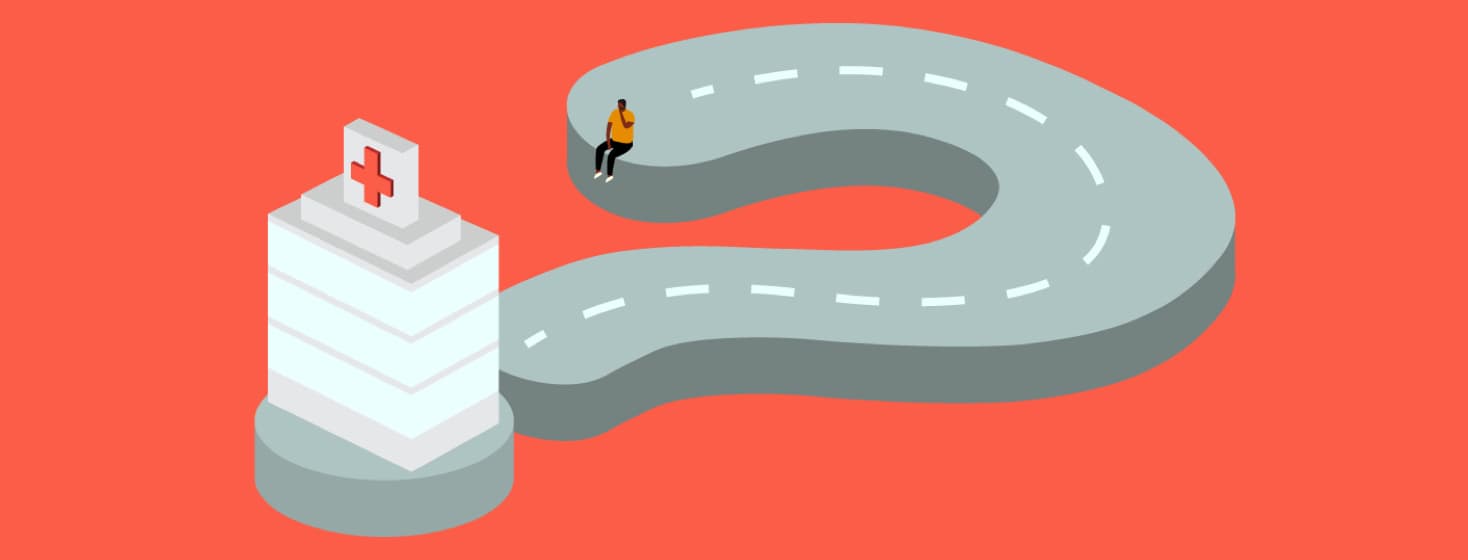After a Heart Attack: The First 30 Days
You've survived a heart attack, one that was most likely unexpected. Now what?
The beginning is hard
You've spent days with a lot of medication attention, being constantly watched, tethered to wires connected to machines that beep constantly, and told how significant this event was.
Then, as if it never happened, you are quickly discharged with gobs of ill-formatted papers explaining what happened to you and told "good luck" as you leave the crazy yet safe world of the ICU.
I'll never forget being excited to leave the ICU and the hospital after an unexpected week of a heart attack and aftermath. But I just had a massive heart attack and felt completely alone despite having my friends and family at my side.
The first 30 days are hard – both physically and emotionally. So here I try to offer some hope of how to adjust to your new life.
Featured Forum
View all responsesMedications
You will probably have a new medication regimen chock-full of new pills. It is overwhelming to figure out what to take when and how often.
First off – buy a medication tray to organize your meds. Some meds will be twice daily, some morning and some just at night. Write "AM," "PM," or "2X" on the top lid with a sharpie. If two medications look the same, ask the pharmacy to look for a different manufacturer to make it easier to distinguish.
If you are fortunate enough to be prescribed some newer designer drugs, those will be expensive. Always check the manufacturer's website to see if they offer assistance, as most do.
Understand the common side effects of your medications. For example, most cardiac meds will make you tired as they aim to slow down your heart and blood pressure. It's unnerving at first, but you do acclimate.
Let your care team know if the fatigue is too much, as they may be able to adjust some doses to make you feel better. It will take a while to adapt to this new regimen – it took me about two years.
Vital signs
It is important to track your vitals after a heart attack. Most of this equipment can be covered on a flex spending plan. You should follow your weight, blood Ox, and blood pressure normally. These can all be found relatively cheap at local mass merchant stores such as Target or Walmart.
While at that store, invest in bandaids – blood thinners and antiplatelets will turn a torn hangnail into what looks like a murder scene. I stepped on a piece of broken cat food that pierced the bottom of my foot. I trailed blood all through my house before I realized it!
ICE and med bracelets
If you received stents from your procedure, you would have been prescribed an antiplatelet medication to help your body accept the new foreign objects. Antiplatelets make your blood super slick so that it won't clot up. It's important to note that you have stents on your ICE or Med bracelet and are on one of these medications. Ask your care team what information should be on your med ID bracelet.
Appointments/testing
You will probably have an appointment with the cardiologist a week after release. It's best to see your PCP as well to let them know what is going on so they can also help manage your care.
My PCPs have always been in lockstep with my cardiology team and are a backup should I ever need an emergency med refill or referral for other procedures and testing.
If you don't currently see a cardiologist, you'll need to find one. Ask around while you are in the hospital to see who the staff likes. Also, see how you interact with the cardiology team during your stay.
You will be forming a long-term relationship with this caregiver, so make sure you are comfortable under their care. You'll want to feel comfortable telling them how you feel and asking questions.
At the end of my appointments, I always ask what symptoms make me go straight to the ER and what symptoms make me call the doctor. It's essential to understand your body and how you should react when something doesn't feel right. Knowing this information will prepare you to manage your symptoms, taking away the guesswork of "should I go to the ER?"
Nutrition
You will have a lot of "don't do this, don't do that," and you'll also hear "no" a lot. I was told that I would never enjoy food again by one of the staff nurses. Not a good thing to hear, and this is not true. See if you can get a referral to a registered dietician from either your cardiologist or PCP. You should still enjoy food, albeit healthier food.
Cardiac rehab
I've written about my experiences with cardiac rehab here. Ask for a referral from your cardiologist. I learned more about what had happened to me and how to care for myself during my cardiac rehab sessions. I also liked being hooked up to an EKG three times a week, under the care of medical personnel, while I started to regain my stamina and confidence working out on a treadmill.
Take it one day at a time
You have to remember that although this happened, you were treated and survived. Many don't. You are lucky and under the care of professionals. You will get through this but first, manage to get through the day, the week, and the year. It gets better – I promise.
Do you have a heart failure story? Click the button below to share with our community!

Join the conversation